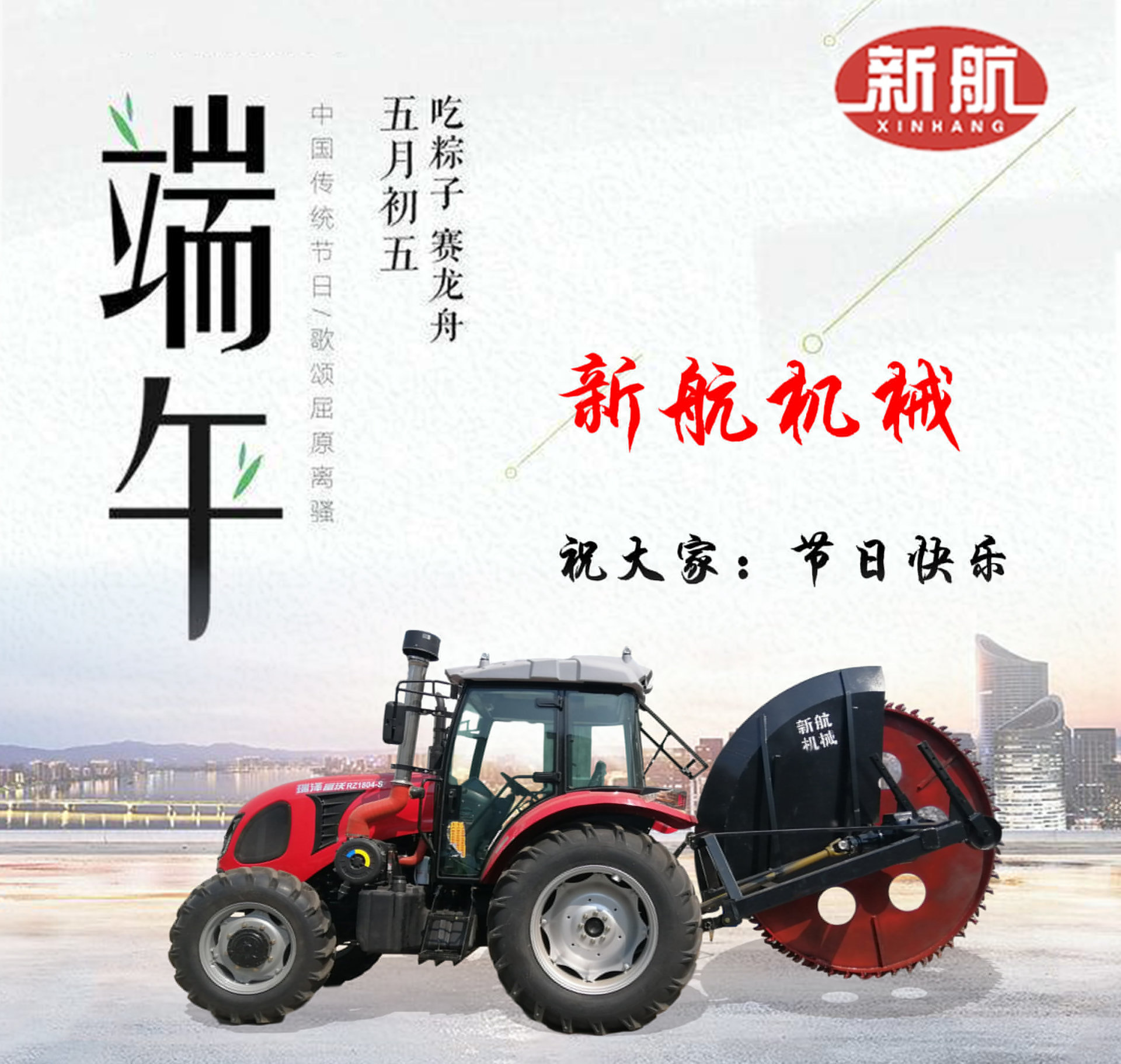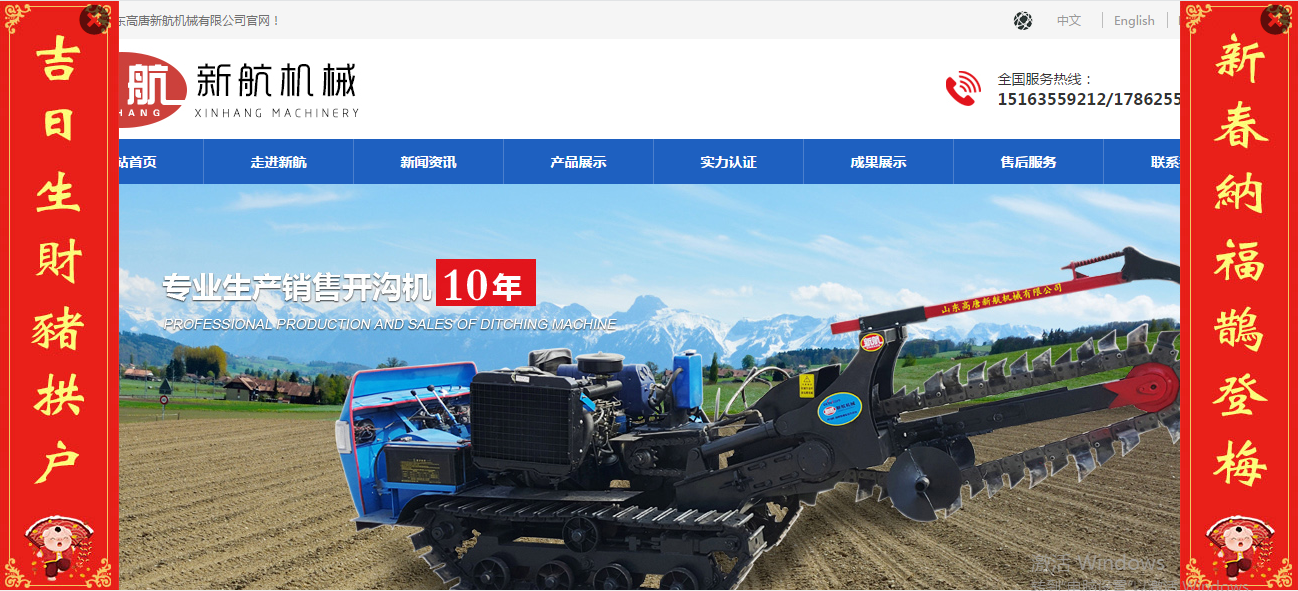Singapore Airlines trenching machine wishes you all: happy Dragon Boat Festival
Published:
2023-05-19
Singapore Airlines trenching machine wishes you all: happy Dragon Boat Festival

Dragon Boat Festival, also known as Dragon Boat Festival, Dragon Boat Festival, Chung Wu Festival, Dragon Festival, Zhengyang Festival, Tianzhong Festival and so on, is a traditional Chinese folk festival on the fifth day of the fifth lunar month.
Dragon Boat Festival originated from celestial worship and evolved from dragon worship in ancient times.
Mid-summer Dragon Boat Festival, Canglong seven nights rose to Zhengnan Zhongtian, is the day of dragon flying, that is, as the Book of changes Qian Gua, the fifth poem said: "Flying dragon in the sky."
Dragon Boat Festival Dragon Star is both "right" and "right", which is a sign of good luck.
The origin of Dragon Boat Festival covers the ancient astrological culture, humanistic philosophy and other aspects, contains profound and rich cultural connotations; in the inheritance and development of a variety of folk customs as a whole, the festival is rich in content.
Braising dragon boats and eating rice dumplings are the two major customs of the Dragon Boat Festival, which have been handed down in China since ancient times.
The Dragon Boat Festival was originally founded by the ancestors of Wu and Yue in the south to worship the ancestors of the dragon.
Because it is said that qu Yuan, a poet of the State of Chu during the warring States period, killed himself by jumping into the Miluo River on May 5, people later took the Dragon Boat Festival as a festival to commemorate qu Yuan; there are also claims to commemorate Wu Zixu, Cao E and Jie Tui.
Generally speaking, the Dragon Boat Festival originated from the ancient ancestors who chose the auspicious day of "Dragon rising to Heaven" to offer sacrifices to their ancestors, injected into the fashion of "dispelling disease and epidemic prevention" in summer, regarded the Dragon Boat Festival as a "evil moon and evil day" in the Central Plains of the north, and commemorated the commemoration of historical figures such as qu Yuan. The formation of Dragon Boat Festival customs can be said to be the product of the integration of northern and southern customs.
Dragon Boat Festival, Spring Festival, Ching Ming Festival and Mid-Autumn Festival are called the four traditional festivals in China.
Dragon Boat Festival culture has a wide influence in the world, and some countries and regions in the world also have activities to celebrate the Dragon Boat Festival.
In May 2006, the State Council included it in the first batch of intangible cultural heritage list; since 2008, it has been listed as a national statutory holiday.
In September 2009, the United Nations Educational, Scientific and Cultural Organization formally approved its inclusion in the "Representative list of Intangible Cultural Heritage of humanity". The Dragon Boat Festival has become a festival for China to be selected as an intangible cultural heritage in the world.
Dragon Boat Festival originated from celestial worship and evolved from dragon worship in ancient times.
Mid-summer Dragon Boat Festival, Canglong seven nights rose to Zhengnan Zhongtian, is the day of dragon flying, that is, as the Book of changes Qian Gua, the fifth poem said: "Flying dragon in the sky."
Dragon Boat Festival Dragon Star is both "right" and "right", which is a sign of good luck.
The origin of Dragon Boat Festival covers the ancient astrological culture, humanistic philosophy and other aspects, contains profound and rich cultural connotations; in the inheritance and development of a variety of folk customs as a whole, the festival is rich in content.
Braising dragon boats and eating rice dumplings are the two major customs of the Dragon Boat Festival, which have been handed down in China since ancient times.
The Dragon Boat Festival was originally founded by the ancestors of Wu and Yue in the south to worship the ancestors of the dragon.
Because it is said that qu Yuan, a poet of the State of Chu during the warring States period, killed himself by jumping into the Miluo River on May 5, people later took the Dragon Boat Festival as a festival to commemorate qu Yuan; there are also claims to commemorate Wu Zixu, Cao E and Jie Tui.
Generally speaking, the Dragon Boat Festival originated from the ancient ancestors who chose the auspicious day of "Dragon rising to Heaven" to offer sacrifices to their ancestors, injected into the fashion of "dispelling disease and epidemic prevention" in summer, regarded the Dragon Boat Festival as a "evil moon and evil day" in the Central Plains of the north, and commemorated the commemoration of historical figures such as qu Yuan. The formation of Dragon Boat Festival customs can be said to be the product of the integration of northern and southern customs.
Dragon Boat Festival, Spring Festival, Ching Ming Festival and Mid-Autumn Festival are called the four traditional festivals in China.
Dragon Boat Festival culture has a wide influence in the world, and some countries and regions in the world also have activities to celebrate the Dragon Boat Festival.
In May 2006, the State Council included it in the first batch of intangible cultural heritage list; since 2008, it has been listed as a national statutory holiday.
In September 2009, the United Nations Educational, Scientific and Cultural Organization formally approved its inclusion in the "Representative list of Intangible Cultural Heritage of humanity". The Dragon Boat Festival has become a festival for China to be selected as an intangible cultural heritage in the world.
19 May,2023
Detalle +19 May,2023
Detalle +





